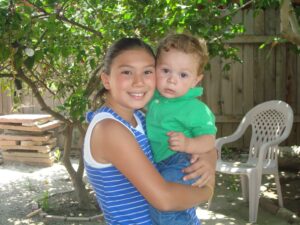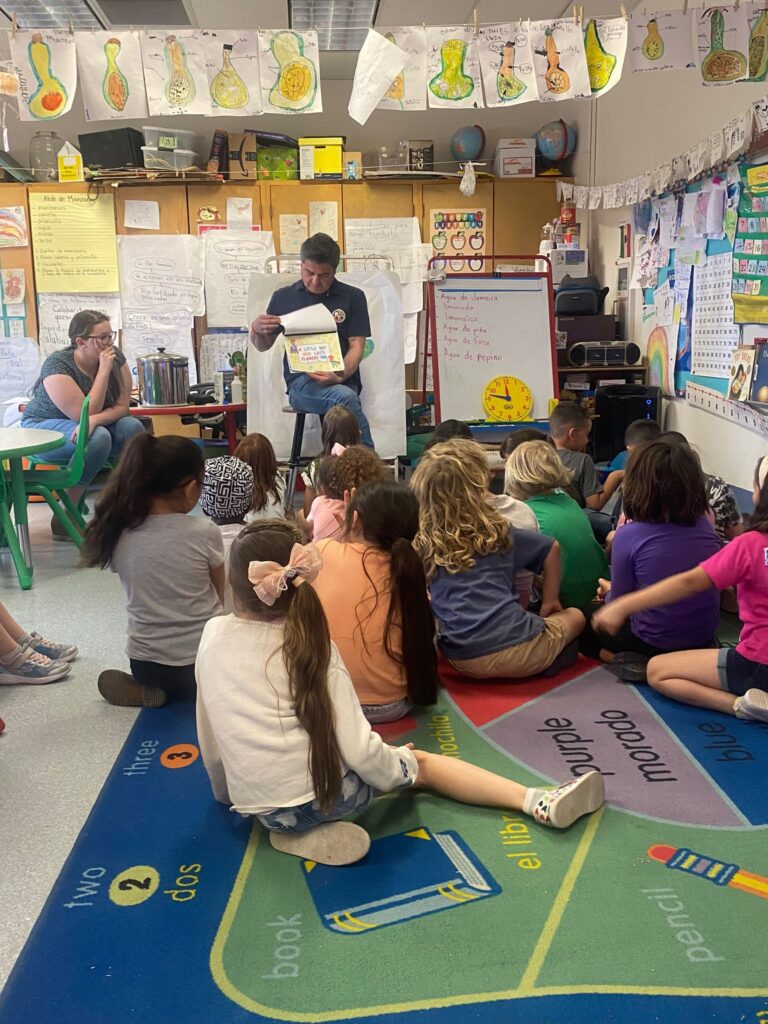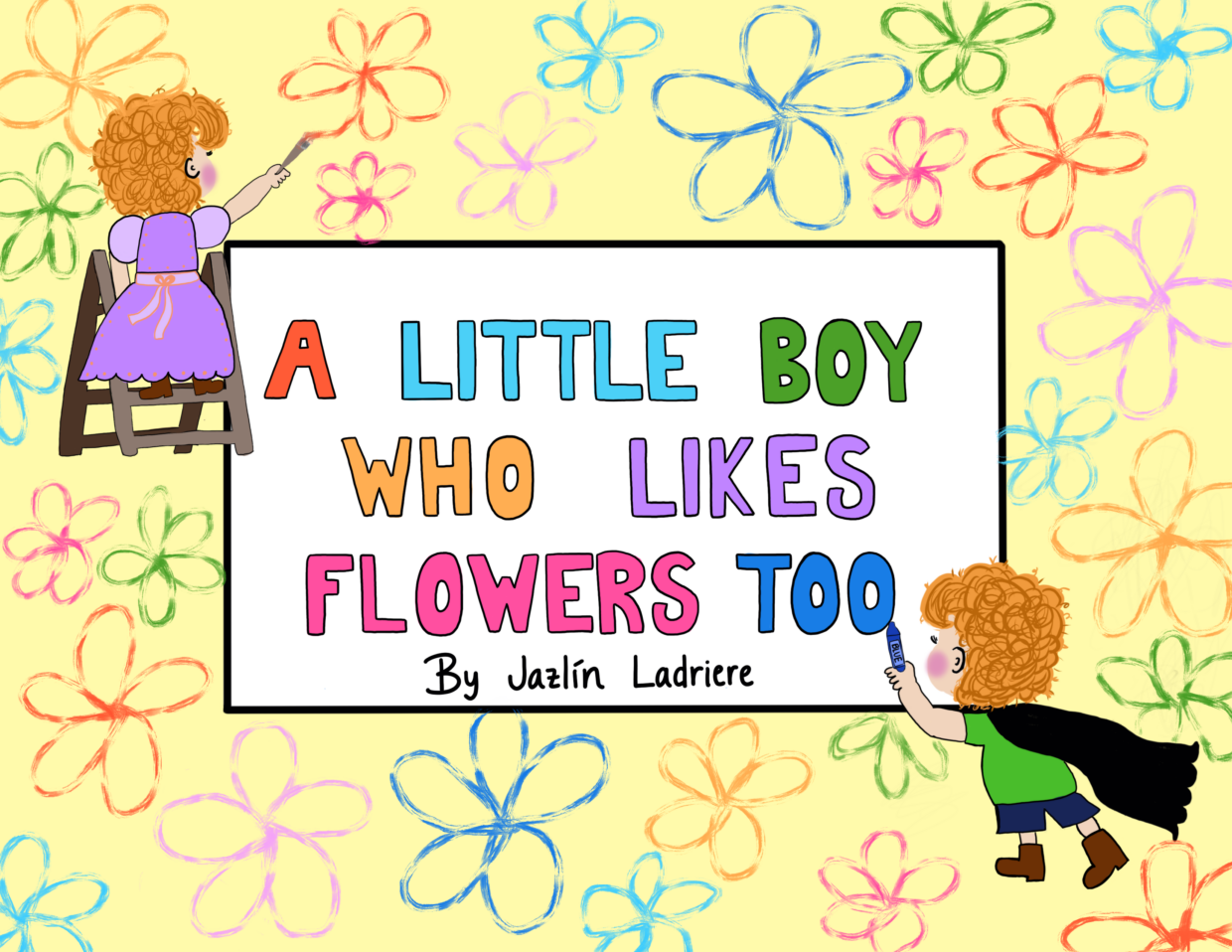Dedication
To Jiovani — my little brother who inspired this book. Thank you for showing me what it means to accept all parts of ourselves. You are a walking reminder of how to love warmly and unconditionally. Yours is the kindest heart I know. Te quiero mucho, Guero. Keep being you.

About the Project
Hello, my name is Jazlín Ladriere, I’m from Tucson, Arizona and I come from a Mexican family. As the oldest child, I grew up nurturing and caring for my three younger siblings, the youngest being my brother. With this responsibility came learning how to protect them and show them the ways in which they could safely maneuver their ways through life. When my brother was born, I noticed he was curious about exploring femininity early on. This might’ve been his second nature or simply because he has three older sisters and wanted to do whatever we were doing. Regardless, my family allowed him to explore this side of himself comfortably and freely. I wanted to use my space in class, LAS 310, to showcase the ways in which family support is highly influential in the development of a child, the way they show up in their daily lives, and the way they treat people around them.
For my Senior Capstone Project, my original idea was to continue my research from last semester on femicide and gender-based violence in Mexico. Hatred and hostility towards women is a global issue I care much about and I wanted to find a way in which I could address this overwhelming cultural issue in a non-violent way. Through my research, I found that in Latinx culture, aggression and violence towards women is deeply rooted in this ongoing phenomenon that we call Machismo. According to the Cambridge Dictionary, Machismo is “strong pride in behaving in a way that is thought to be typically male; by showing strength and power.” While I believe that Machismo is a systemic issue of the patriarchy, I also believe that our children learn through observation and through set examples. This is something that begins primarily in the household and in larger social settings, i.e. school, play, communal gatherings, etc. With this in mind, I wanted to create something that would target a younger audience, specifically children roughly around the ages five through seven. Along with this, I wanted to create a resource for parents, guardians, and teachers in which they could learn more about gender fluidity, comfortability of gender expression, the intersectionality of femininity and masculinity, and move away from associating emotions with a state of weakness. In Latinx culture, our children (especially our boys) are often taught that they have to be tough. They are taught that showing emotions makes them weak— that they need to be domineering, strong, and powerful in order to be taken seriously. The socialization of these emotion and gender hierarchies is something that snowballs into gender-based violence and larger issues such as femicide. By teaching boys (and children in general) to be comfortable with femininity, gender expression, and emotions, they can grow to be respectful and loving towards women and all people. Maybe with this mentality we can hopefully inch our way towards dismantling Machismo.
This children’s book is a story about a little boy who explores the freedom of gender expression and the intersectionality between femininity and masculinity. The story follows the boy through his daily tasks, such as picking out clothes to wear, his definition of play, his comfortability with his parents, and his interactions with friends. This book builds upon a foundation in which autonomy begins in a home and in turn promotes a nurturing environment for him where he can comfortably play with gender identity/fluidity, learn how to be respectful of women, and de-stigmatize gendered roles. The main idea is to show young boys that being in touch with their feminine side is okay, being sensitive is okay, and showing love is okay. This being said, I aim for the basis of my book to be about love and kindness. I want love to be apparent throughout the storytelling not only to illustrate to children that there is no “correct” way of being a particular gender, but also to teach adults how to be accepting and supportive of this as well. Overall, this book illustrates different ways in which we as humans can be compassionate, thoughtful, and kind, regardless of our gender identities.
Acknowledgements
A special thank you to Michelle Joffroy, Clarissa Joffroy, Michelle Tellez, Elizabeth Ladriere, Abril Navarro, and my LAS 310 peers. Your guidance, support, and feedback has meant the world to me. Without you, this book wouldn’t be what it is today.
To Davis Bilingual Elementary Magnet School, Sr.Barceló, Srta.Alvarez, Sra.Castellanos, and Sra.Paress— thank you for partnering with me, inviting my book into your classroom, and reading it to your students. Your enthusiasm and excitement has reminded me of the reasons I pursued this in the first place. I hold this project close to my heart and I’m happy that I’ve had the privilege of sharing it with the Davis community. Muchísimas gracias.

Sr. Barceló’s classroom — Davis Bilingual Elementary Magnet School
Click on the Parent Resource Page button below for a full walk-through of the book and other resources!

